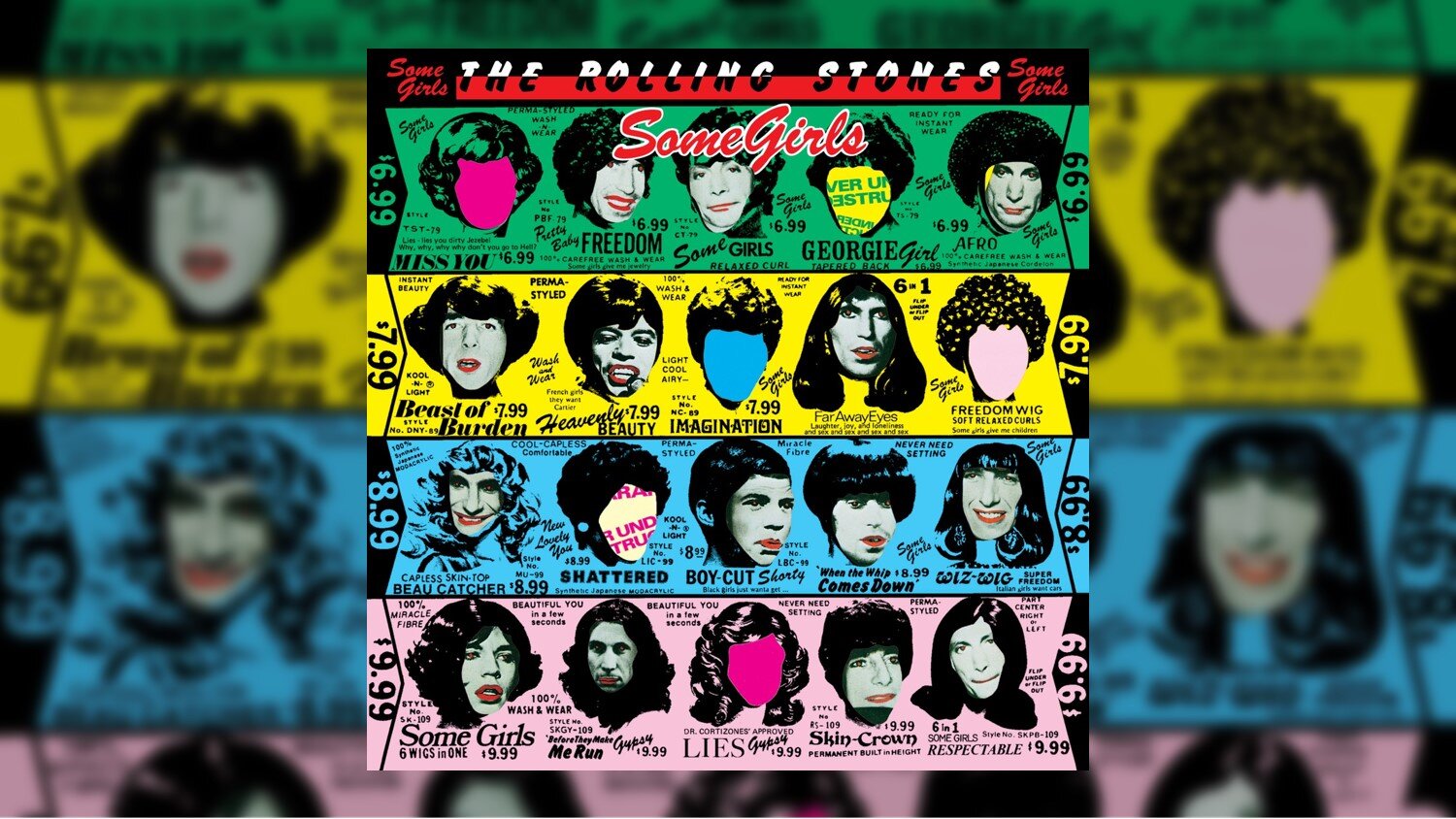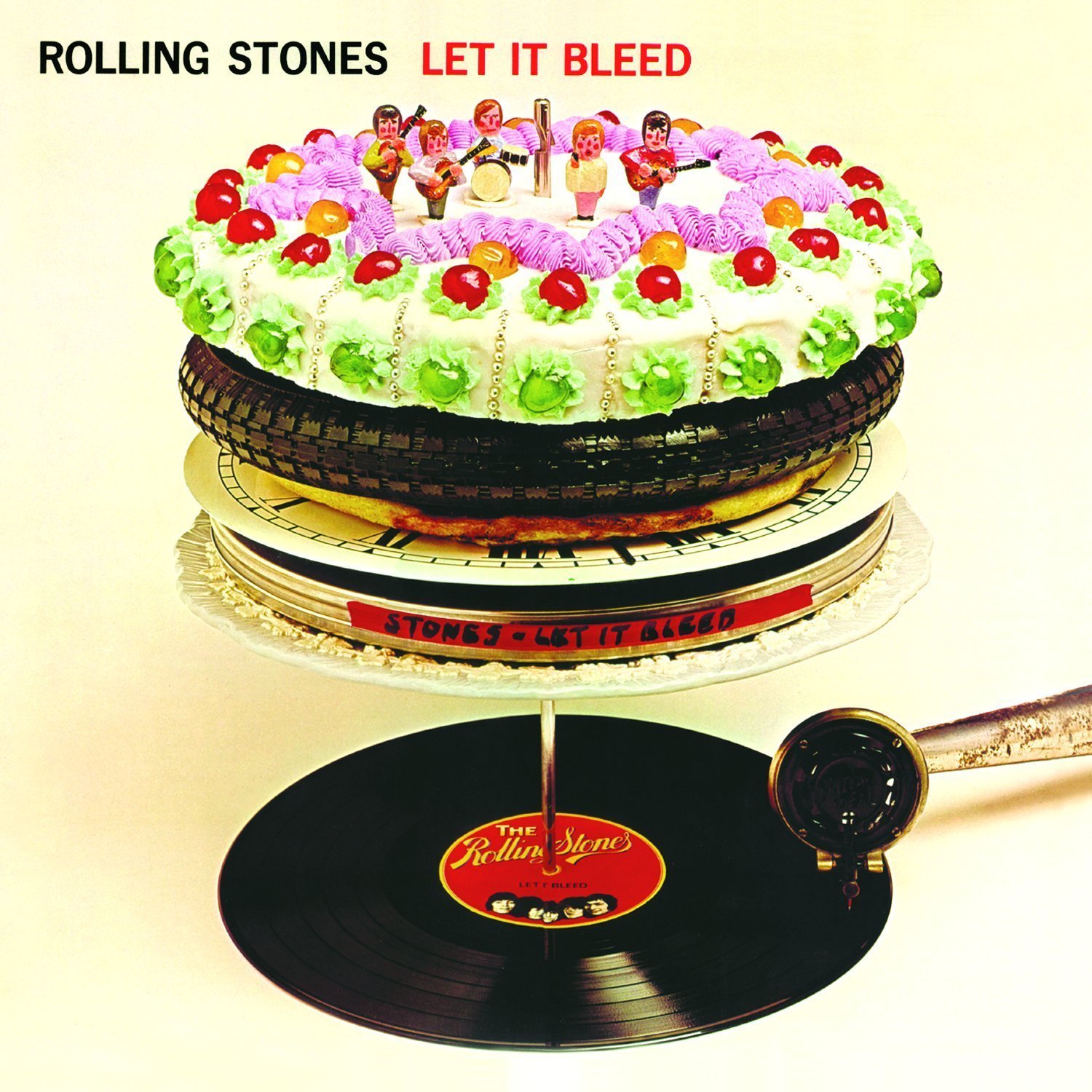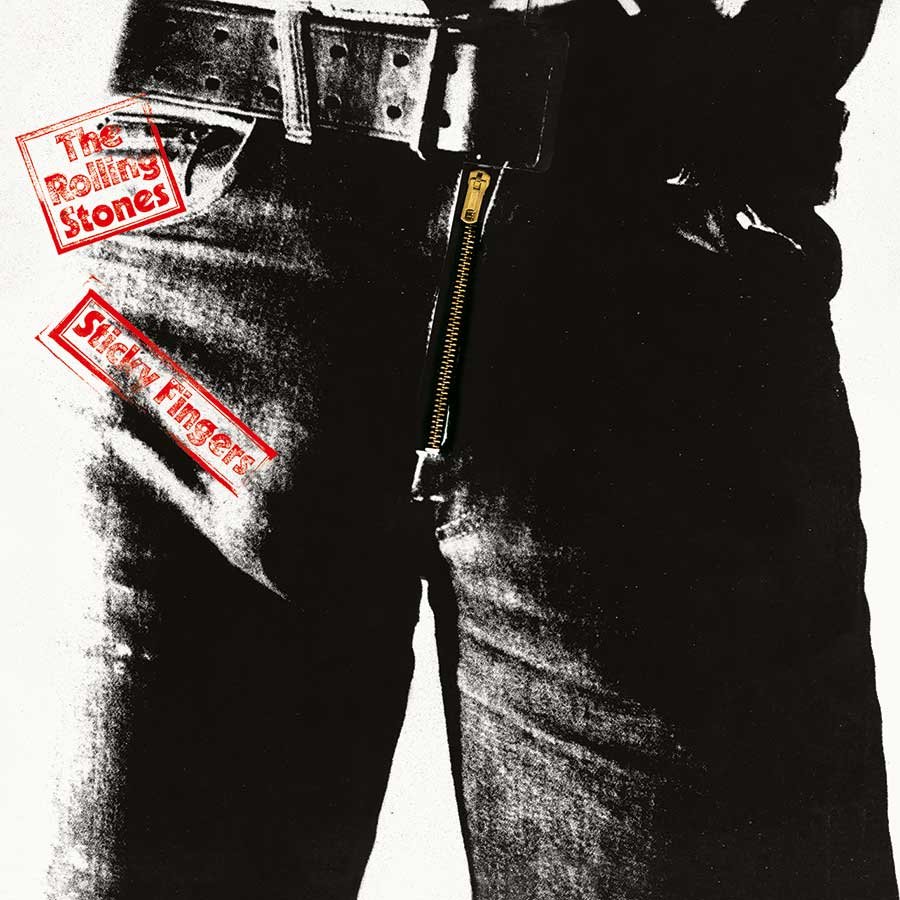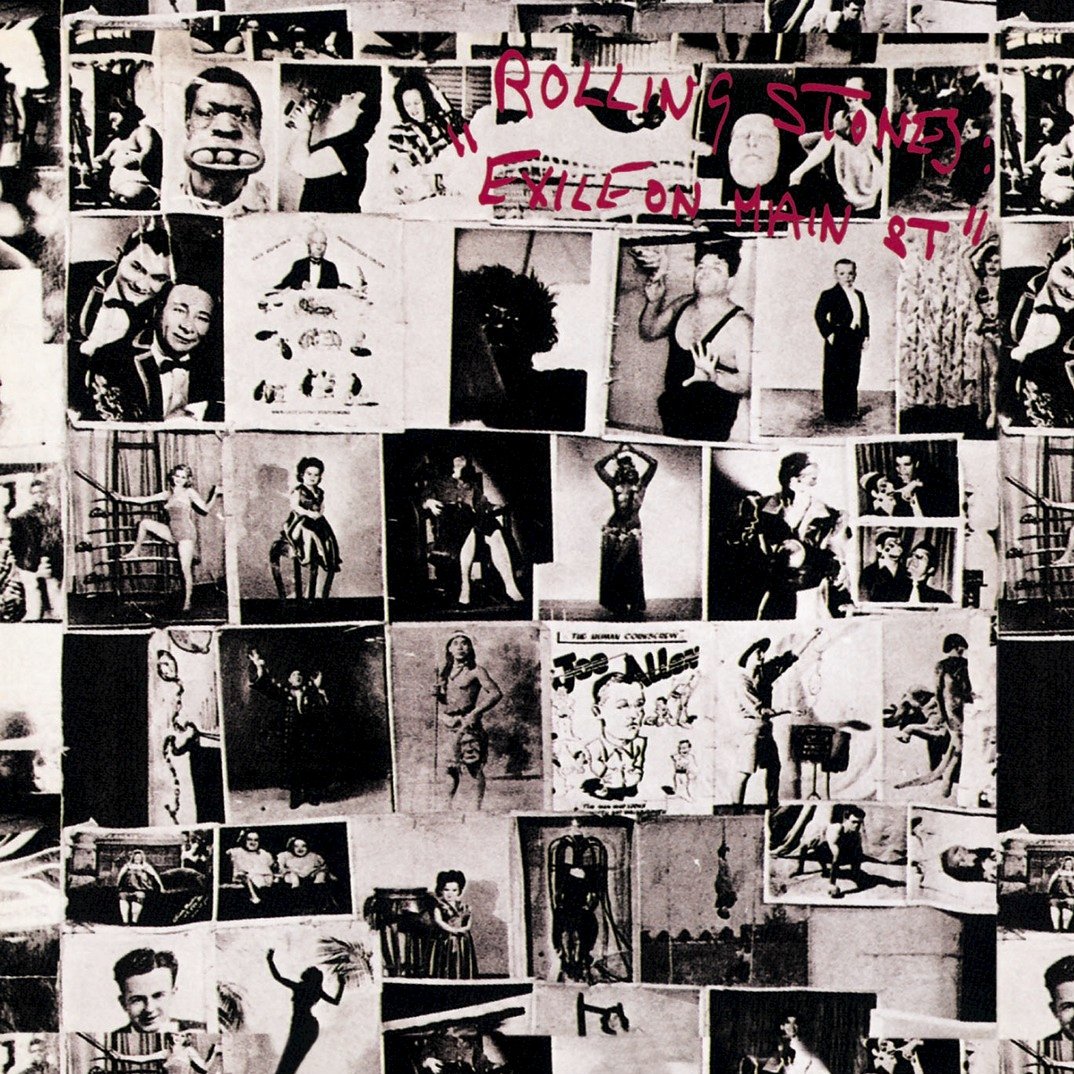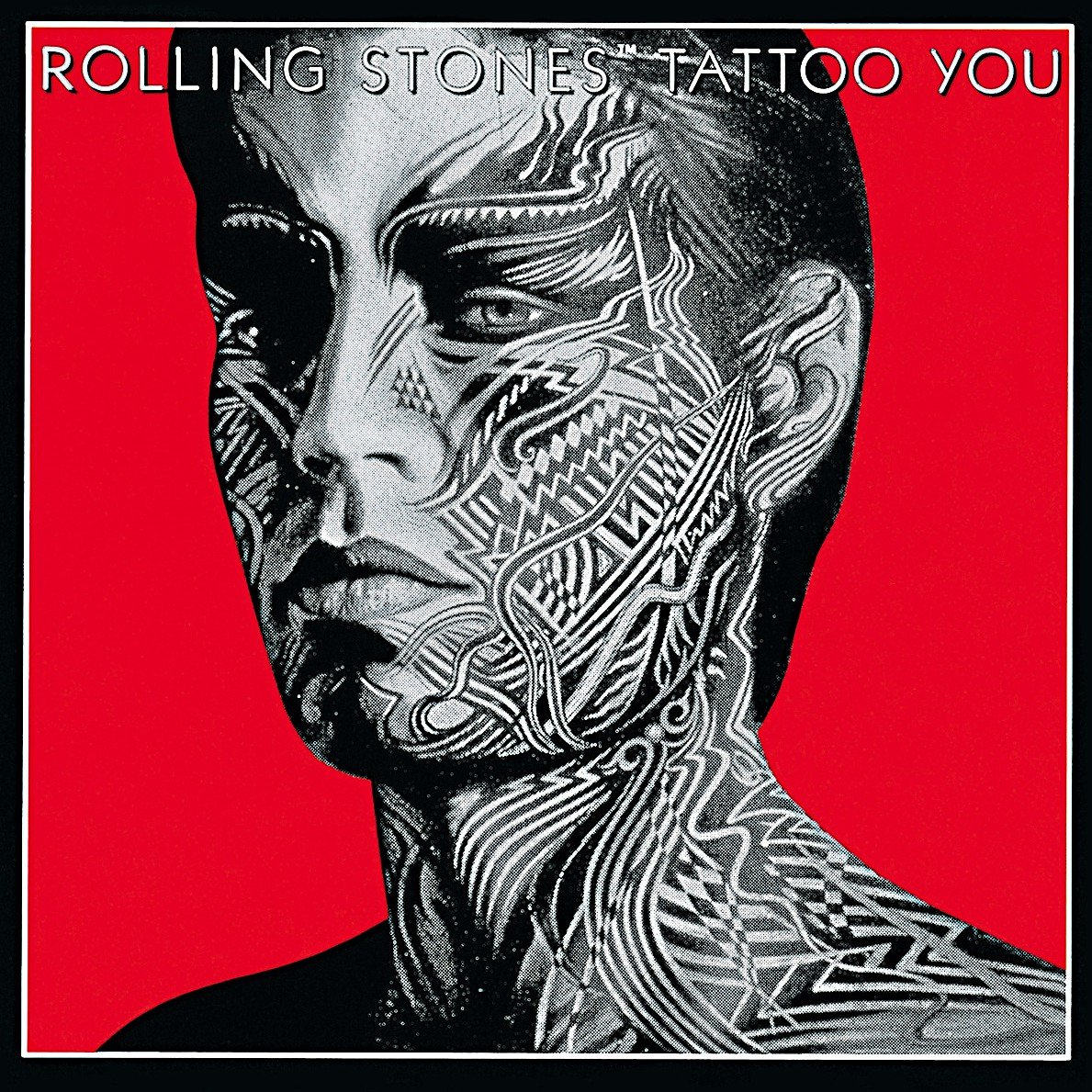Happy 45th Anniversary to The Rolling Stones’ fourteenth (UK) and sixteenth (US) album Some Girls, originally released June 9, 1978.
Some Girls is the last great album made by the Rolling Stones.
The Stones have been rolling for 61 years, longer than any rock & roll band ever.
They recorded at least five albums regarded as all-time bullet-proof classics, not just among their genre, but all of popular music: Beggars Banquet (1968), Let It Bleed (1969), Sticky Fingers (1971), Exile on Main Street (1972), and the aforementioned last blast, Some Girls.
In last year’s 50th Anniversary piece on Exile on Main Street, I mentioned that making that decadent 1972 double album in many ways killed the band.
And it did. Mick Taylor hung around for a couple more years, but then quit to save either his soul, earthly vessel, or more likely both.
Keith Richards spent nearly an entire decade on skag.
Mick Jagger juggled business and pleasures with mixed results.
Ronnie Wood joined the fold to fulfill the band’s need for another guitarist while, if not more importantly, satisfying Keith’s need for a chemical co-conspirator.
I’m not exactly sure what bassist Bill Wyman did during the seventies, but it likely involved teenage groupies, while drummer Charlie Watts remained faithful to his wife, drew sketches of the inside of his countless hotel rooms, and held things together behind the kit.
In a 1988 Rolling Stone cover story on then-ascendant Guns N’ Roses, Slash suggests Mick Jagger "should have died after Some Girls, when he was still cool."
That sentiment sounds a bit cruel, yet from a mythological standpoint, sorta true.
Nobody can stay cool or live forever, despite Keith Richards fighting the good fight on both fronts.
The cool either die early or live long enough to become uncool.
Don’t shoot the messenger, I don’t make the rules.
Slash and his band stopped being cool, especially with each other, within five years of their debut and the accompanying cover story hitting the shelves.
The Stones’ time at the height of cultural zeitgeist was more like two decades.
On Some Girls, even by snotty-nosed rocker rules, Jagger was still cool.
And Keith was still cooler, despite in the early sessions for this album being dragged around like Weekend at Bernie’s due to his well-documented demons.
Some Girls is a New York City album.
And not just any New York City album.
1977 New York City.
Son of Sam.
Studio 54.
CBGB.
Bankruptcy.
Blackouts.
Decay.
Rebirth.
Downtown Art Scenes.
Hip-Hop Born in The Bronx.
Reggie Jackson.
Billy Martin.
You get the picture.
The Stones, members of the initial British Invasion closely following The Beatles onto an Ed Sullivan stage, then recording on the run during most of the seventies in France, Jamaica, or Switzerland, for the first time take a big bite of the Big Apple, don’t mind the maggots, and concoct this classic.
Watch the Official Videos:
Some Girls begins with disco (“Miss You”) and ends on punk (“Shattered”).
Yet both, like everything in between, sound like prime Stone grooves.
The Glimmer Twins were living in Gotham, soon-to-be single and ready to mingle.
New and old romantic and musical matchmaking abounds throughout.
“Just My Imagination” is the best Stones cover of a Motown song in their long history spent mining that familiar soul and early rock-and-roll territory.
They began their career with slight covers of Chuck Berry’s “Come On,” and Marvin Gaye’s “Hitch Hike,” in their first officially recording year (1962).
They scored a surprise Top 20 pop hit with a cover of The Temptations’ “Ain’t Too Proud to Beg” on It’s Only Rock & Roll four years earlier.
Their performance of The Miracles’ “Going to a Go-Go” gave their overly polished live album Still Life a much-needed boost of the latter four years later.
But their “Just My Imagination” is sheer beauty, in part because unlike many of those it doesn’t sound like Mick & Co. mimicking the Temps, or Smokey, or Stevie.
It sounds like the Rolling Stones paying tribute to a favorite anthem of unrequited love, while sounding like themselves, and rendered lovingly while doing so.
This version, along with The Temps’ original, plus the live comet-trail-live-guitar-clusters from Prince’s cover off his legendary 1988 Small Club bootleg, form a triple-crown of classic renditions by legends taking on a definitive Motown song.
The title track “Some Girls” was infamous, even before the album and its accompanying cover art was officially released.
The line “black girls just wanna fuck all night, I just don’t have that much jam” drew enough ire back in 1978 that Jesse Jackson and his Operation PUSH felt a meeting with Atlantic Records’ CEO Ahmet Ertegun was necessary.
The Stones, originally an anti-establishment band that hung around long enough to become the establishment, stuck to their guns behind that problematic line.
While a few black-oriented radio stations (“Miss You” still made a splash on black-radio across the country) boycotted Some Girls following the album's release, Jagger told Rolling Stone that "Atlantic tried to get us to drop it, but I refused. I've always been opposed to censorship of any kind, especially by conglomerates. I've always said, 'If you can't take a joke, it's too fucking bad."'
In the long run, the song’s concept, accepting its satirical conceit or not, provided the (pun intended) blueprint for another song and album inextricably linked to a specific era of New York City (9/11/01 in this case), on Jay-Z’s “Girls, Girls, Girls.”
In our current #MeToo #TimesUp climate, the “censorship” the Rolling Stones—a group deeply indebted to the black American musical roots that inspired their sound and name—fought in 1978 dots a classic with a mostly unnecessary blemish, as Jigga’s “I asked her what tribe she with, red-dot or feather?” little Indian-girl couplet went on to do twenty-three years later.
Enjoying this article? Click/tap on the album covers to explore more about the Rolling Stones:
Much like almost every post-London years Rolling Stones album, Some Girls features a solo song with a lead vocal performed by Keef.
But this one possesses arguably his greatest, particularly in context, with the sun-setting-on-an-aging-renegade reckoning of “Before They Make Me Run.”
If not his best, “Before They Make Me Run” is undoubtedly in Keith’s Big 3, fitting in snugly somewhere alongside “Happy” and “You Got the Silver,” with all apologies to “Little T & A” and “Slipping Away” rounding out the Top Five.
Some Girls is a tight, spiky, ten-song, forty-minute affair.
Straight bangers, no mash.
For the first time in ten years, the Stones produced a complete album with nearly only their core-five lineup, eschewing their evolving cast of ace session-playing characters who either died (Gram Parsons), fell out of favor (Bobby Keys), or were deemed unnecessary (Ian Stewart, Nicky Hopkins) for this guitar-centric outing.
A 12-song bonus disc of outtakes from this period appearing on the 2011 deluxe reissue, would outdo many major ‘70s rock bands’ efforts then, and most since.
But outside the hidden country-blues gem “No Spare Parts,” a long-in-the-tooth lothario’s lament from a then-only-34-year-old Jagger, which could have easily been swapped in for Some Girls’ cornpone country-fried parody “Far Away Eyes,” no other song deserved to replace any of the original ten we got back then.
If Exile was predominantly a Keith album, Some Girls is a definitively Jagger one.
The vocals shift, from being muddled on Exile, into the forefront of the mix.
The lyrics, on Exile sometimes indecipherable or inconsequential, are elemental.
Perhaps that’s partly why in major interviews promoting its release, Mick proudly declared “I think Some Girls is the best album we've done since Let It Bleed.”
Narcissistic agenda, or tongue-wags toward humility aside, he might be right.
Some Girls may very well be the best album this band ever made.
With Jagger taking an active role in helping to solve their contractual messes during the mid-seventies, while his ax-wielding other half maneuvered thru life in various states of heroin-induced haze, Some Girls became a crowning achievement.
It did so despite the specter of Richards’ upcoming trial in Canada for heroin-distribution scheduled for October 1978 threatening to effectively end the band that two childhood friends from Dartford Elementary School had shepherded to the top of the pops, beginning with “(I Can’t Get No) Satisfaction” in 1965.
With few notable exceptions, Mick is in control of this album’s content and vision.
While the Rolling Stones were often poster-children for rock music’s machismo, right down to its lips-and-tongue logo, the man Ronnie Wood jokingly referred to in double-entendre on Love You Live as “Old Bum’s Rush Jagger” was always the most “gender fluid” bandmate (cue “Dancing in The Street” Bowie duet clip).
Some Girls even features him singing from the perspective of a gay hustler in the city’s male-prostitute urban underworld of “When the Whip Comes Down.”
Mick’s marriage to Bianca was busy ending, as he was busy stealing legendarily leggy supermodel Jerry Hall away from Roxy Music lead singer Bryan Ferry around the time of Some Girls’ recording.
As a result, the bile Mick spews towards Bianca on “Lies,” seemingly placing the infidelity blame solely on his wife’s shoulders, feels curiously disingenuous.
Bianca years later famously remarked, “my marriage ended on my wedding day.”
The achingly melancholic soul of Top 10 pop-charter “Beast of Burden” (primarily authored by Richards, with some in-studio Jagger improvisation) feels like a more accurate interpretation of all the dividedly disheveled emotions divorce can bring.
Richards, of course, was slogging through some troubles of his own.
The perils of a potential life sentence in Toronto prison, for one.
The ravages of a debilitating heroin addiction to name another.
There was also the looming dissolution of a twelve-year relationship with Italian-German actress/style-icon Anita Pallenberg, mother of his first three children.
Richards, the band’s musical driving force, had become in some ways a liability.
“Beast of Burden” can be seen as an olive-branch extended towards his band or old partner/friend, as close to an “apology” as Keef is ever gonna give anybody.
All of the pathos on “Beast” is present, amidst Mick’s cooing and begging, while Richards and Wood seamlessly trade sweetly undulating guitar-licks in what Richards famously describes as “the ancient art of weaving.”
“Respectable” is the still-boyish-but-old-by-punk-standards Rolling Stones tongue-and-cheeky response to their perceived lofty place upon the pop-cultural perch, in the suddenly dark and dingy Sex Pistols and Ramones rock world of 1978.
On several Some Girls rockers, the Stones ramp up their foundational Chuck Berry-based riffing to breakneck pace, in a seemingly unspoken effort to beat the young bucks at their own game.
There is a laser focus and palpable energy, from a group that in this incarnation still felt it had something left to prove, that propels this album from start to finish.
Following Some Girls’ success, this is a level of magic they never quite recaptured.
But then again, arguably no album by any band since has reached this tier either.
In the Summer of ’78, Some Girls was regarded as a “comeback” of sorts.
This was and is somewhat ironic, since the Stones had already outlasted virtually all their rivals to become the longest-tenured rock & roll band (17 years, by then twice as long as The Beatles had existed), while in retrospect they were still only through the first fifth of a six-decades-and-counting career.
Some Girls arrived two years after the underrated, reggae-imbued Black and Blue (#1 on the Billboard albums chart for four weeks in 1976), the blues-and-funk-infused It’s Only Rock and Roll (#1 in Fall 1974), as well as their first major tour since Ron Wood replaced Mick Taylor
Countless lesser bands would sell their souls for a “slump” like that.
On a commercial as well as critical level, however, Some Girls was indeed a return to the highest point the Rolling Stones would reach, 1971’s Sticky Fingers.
To this day, it’s the only Stones album to be nominated for an Album of the Year GRAMMY (losing to the cultural watershed Saturday Night Fever soundtrack).
It was their last #1 album in the United States, with American record buyers rewarding this State-ly incarnation to the tune of six million albums sold.
It capped off a distinct era, a decadent decade, and one of the greatest ten-year runs (‘68 thru ‘78) any band ever had since the album era began in the mid-sixties.
1981’s Tattoo You would be their last blockbuster. A strong album in its own right, it nevertheless feels like the collection of songs cribbed from disparate times and spaces it is.
The Stones, the genre, and the New York of Some Girls would never be the same.
For anyone who was there and misses that milieu, or the many others who wanted to be but never experienced it, put on Some Girls sometime.
Shortly following the opening four-on-the-floor bass-drum beat of “Miss You” entering your earhole, you’ll find yourself shuffling through its streets.
LISTEN:
Editor's note: this anniversary tribute was originally published in 2018 and has since been edited for accuracy and timeliness.

